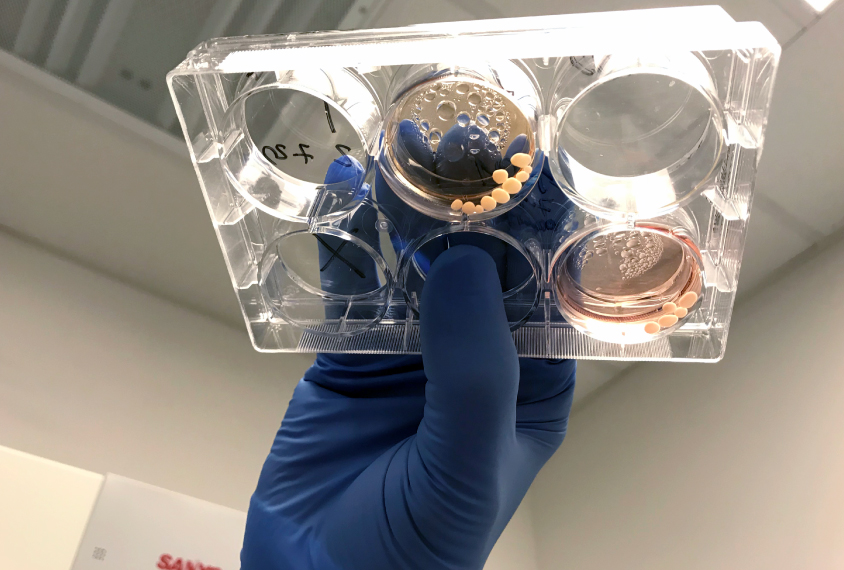A San Diego family knows first-hand the effects of microcephaly, a rare birth defect that causes babies to be born with abnormally small heads, a condition now in the spotlight due to the Zika virus.
Microcephaly stunts brain development in fetuses, but the condition is not just caused by the Zika infection. One local family, the Handy family, says their daughter, Scarlett, has microcephaly, and say the birth defect has been around long before the Zika virus started gaining attention.
Parents Russ and Rhonda Handy hope that by sharing 6-year-old Scarlett’s story, they can educate the public about what it means to live with microcephaly.
Scarlett is Russ and Rhonda’s adopted daughter. She was born with microcephaly and, when she was an infant, a doctor told her parents Scarlett might not survive.
“When that doctor told me she wasn't going to live past four months old, I left that doctor's office thinking, ‘No, she's going to live a full life and whatever her capacity is she's going to live it to the fullest.’ And I've made sure every day she's going to be on this planet, and I'm here, she's going to live it,” Rhonda told NBC 7.
Rhonda said that when Scarlett was born, her head circumference was nine inches. An average, healthy newborn's head circumference is between 14 to 16 inches.
“I'll say, ‘Oh, she has microcephaly’ and people will go, ‘Oh, from the Zika virus?’ And you can see the horror in their eyes, and it's like, ‘No, no, no,’” said Rhonda.
Local
Microcephaly isn't just caused by Zika.
“There are a lot of things that can cause a brain not to fully develop and be smaller at birth,” said Russ.
In Scarlett’s case, it's genetic.
Right now Scarlett's head circumference is the size of a normal newborn's and it is not expected to grow anymore. She struggles with almost constant low-grade seizures and cerebral palsy and takes a list of medications.
Developmentally, she is challenged -- at age six she has the cognitive ability of a 2 or 3-year-old. Her parents consider her higher-functioning. Some children with this condition spend most of their lives on a feeding tube and ventilator.
"The textbook really hasn't been written on microcephaly,” said Russ. “We work with one of the top guys in the world on this and he says we're still collecting data, we really don't know what her potential is.”
The Handys have dedicated themselves to learning as much as they can, and connecting with other families facing similar challenges. They've found a community of support with the help of social media.
“We've seen very high functioning kids with microcephaly at some of the conventions we've been to who are doing karate, participating in pageants there's even one kid we've heard about who's grown up and gotten married,” said Russ.
The Handys said they want to encourage others facing a similar diagnosis for their baby not to give up hope.
“If your child does have microcephaly, you're not alone,” said Rhonda.
Even through the struggles, they say their life is sweeter because of this little girl, and they're determined to help Scarlett enjoy it.
"No matter what challenges she may have, no matter how many times she has to be in the hospital, she's going to live life to the fullest,” Rhonda added.
Russ said Scarlett enjoys water activities, including canoeing and kayaking. The 6-year-old also keeps busy riding horses. She has a lot of support from her family.
“We're fortunate, because we have a big family, we have 10 children, and we're really big on family so all of our children love her and they all have her own relationship with her so she has so much stimulus and so much interaction," he added.
The Handys say one of the positive things to come from the Zika virus has been the additional focus and research money devoted to microcephaly. For more information on microcephaly and how to help this family, see this post below.



